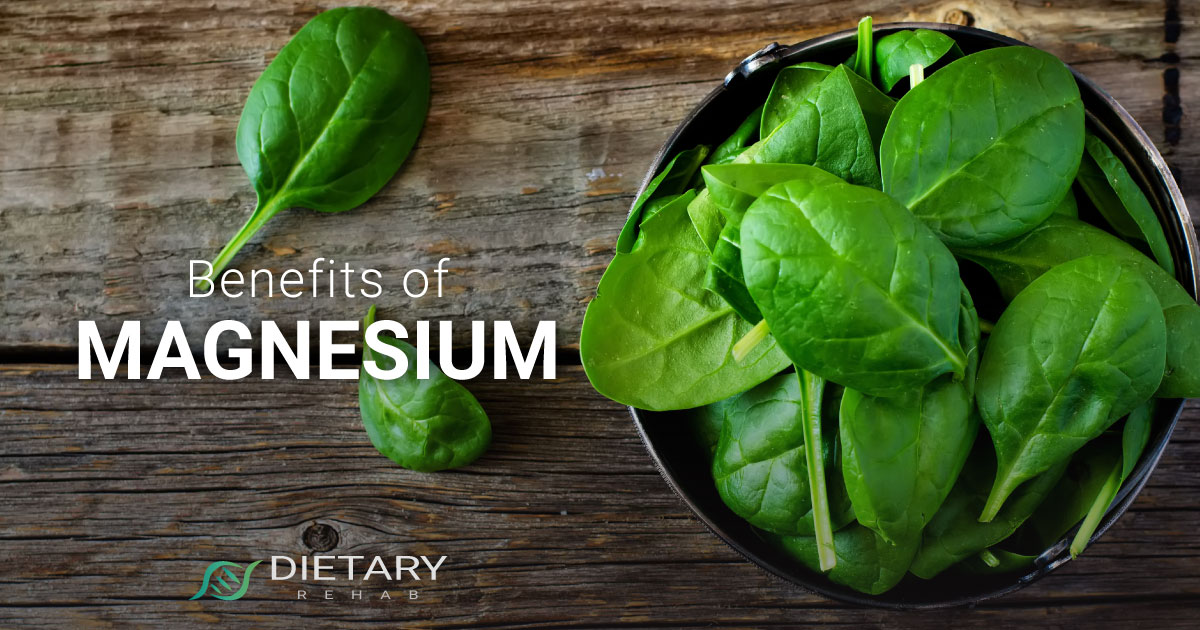Why You Need Magnesium
Magnesium plays many important roles in the body. It’s also one of the micronutrients in which we are most deficient, with an estimated 80 percent of American adults having some level of deficiency.
A magnesium deficiency can lead to several troubling symptoms, from fatigue and muscle aches to insomnia and anxiety. Many adults may be experiencing side effects of low magnesium and not even realize it.
Do You Have a Magnesium Deficiency?
Since magnesium plays a role in over 300 biochemical reactions in the body, a deficiency can lead to serious and noticeable symptoms. Some of the most common include:
Circulatory Symptoms
A magnesium deficiency, if it persists long enough and is severe enough, can contribute to hypertension (high blood pressure) and cardiovascular disease. In some cases, it can be linked to preeclampsia (pregnancy complication that causes high blood pressure) or eclampsia (onset of seizures in a pregnant woman).
Nervous System Symptoms
A magnesium deficiency can cause troubling symptoms within your brain and nervous system. These symptoms may include:
- Trouble sleeping
- Migraines
- Mood swings
- Fatigue
- Restless leg syndrome
Immune System Symptoms
Low levels of magnesium can contribute to recurrent bacterial infections or fungal infections, which may be the consequence of a depressed immune system. You may also be at risk for tooth cavities.
The Benefits of a Magnesium-Rich Diet
On the other hand, a magnesium-rich diet can come with a host of benefits. Some of the most notable include:
More Energy
Magnesium helps increase your energy levels and combat fatigue by activating ATP, which fuels cellular activity within the body.
Alleviates Anxiety
Magnesium plays an important role in GABA function, which helps produce serotonin. Serotonin is one of your “happy” hormones that promotes relaxation. This helps explain why some people with magnesium deficiency struggle with insomnia or anxiety.
Aids Digestion
Magnesium helps your muscles relax within your digestive tract, and helps moves stool through your intestines. Magnesium deficiencies can lead to constipation, so increasing your levels can ease gastrointestinal discomfort.
Relieves Aches and Pains
Magnesium also plays a role in muscle contractions. When you have a magnesium deficiency, you may experience cramping or spasms. Having adequate magnesium can help your muscles relax and reduce cramps and weakness.
Fuels Your Heart
Magnesium is essential to your cardiovascular health. There is more magnesium in your heart than anywhere in your body. It works symbiotically with calcium to support a healthy blood pressure and prevent hypertension within your body.
Natural Sources of Magnesium
While there are many magnesium supplements available on the market, many people can get adequate magnesium through a healthy diet. By incorporating some of the following magnesium-rich foods into your diet, you can replenish your levels and enjoy more energy, less pain and improved body functions.
Avocado
Avocado may be classified as a fruit or a vegetable, but either way it packs a serious nutritional punch. These humble little husks contain 15 percent of your recommended daily intake (RDI) of magnesium, plus they’re loaded with heart healthy fats, potassium and fiber.
Nuts
Nuts also work to deliver both heart-healthy fats and magnesium. Almonds, cashews and Brazil nuts have the highest amount of magnesium, with about 20 percent of your RDI in a one-ounce serving.
Legumes
This family of nutritious foods – which include soybeans, peanuts, peas, chickpeas, beans and lentils – are loaded with magnesium. In fact, one cup of cooked black beans contains nearly one-third of your RDI.
Leafy Greens
The basic ingredients of your salad, spinach in particular, can provide much of your magnesium for the day. A cup of spinach yields one-third of your RDI. A spinach salad garnished with cooked chickpeas for lunch could provide you with half of your magnesium for the day or more.
Dark Chocolate
For you chocophiles, here’s a cause for celebration: Not only is dark chocolate loaded with antioxidants, it’s also a good source of magnesium (about 15 percent for a few squares).
Keep in mind that this is still a treat to be enjoyed in moderation. Stick to a serving instead of a whole bar.
The Bottom Line
Magnesium serves several vital functions throughout the body. If you’re feeling fatigued, stressed, anxious or have trouble sleeping, these could be warning signs of a deficiency.
Incorporate magnesium-rich foods into your healthy and active lifestyle. You might be impressed with the results. For more information on healthy living and a well-balanced diet, bookmark or follow our blog.












